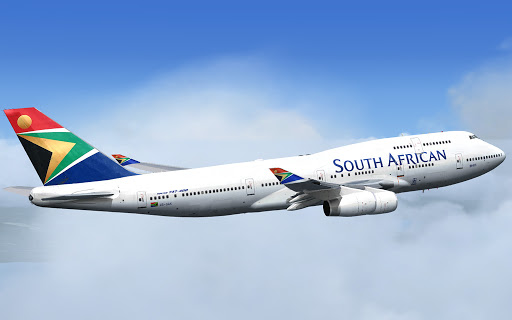After nearly six months of lockdown from the rest of the world, South Africa is reopening its borders for tourism on October 1 — but travelers coming from the U.S. won’t be welcome at this time.
“We are ready to open our doors again to the world,” South African President, Cyril Ramaphosa said in a statement announcing the decision last month, “and invite travellers to enjoy our mountains, our beaches, our vibrant cities, and our wildlife game parks in safety and confidence.”
The country closed its borders to foreign travellers in late March in response to the coronavirus pandemic.
South Africa has been one of the world’s hardest-hit countries. But after extensive efforts to flatten the infection curve, the country says it is now ready to begin welcoming back tourists.
Pre-pandemic South Africa hosted 17 million visitors a year. Notably, however, travellers coming from the U.S. and the U.K., among others, won’t be invited to visit quite yet.
Can you Visit South Africa right now?
President Ramaphosa is allowing travelers from a select number of low-risk countries to visit South Africa during this initial phase of reopening as of October 1. At this time, U.S. travelers aren’t permitted to visit.
What other countries or territories are included on South Africa’s high-risk list?
In total, there are 60:
Albania, Argentina, Armenia, Austria, Bahrain, Belgium, Bolivia, Bosnia and Herzegovina, Brazil, Chile, Columbia, Costa Rica, Croatia, Czech Republic, Denmark, Ecuador, France, Georgia, Greece, Guatemala, Guyana, Honduras, Hungary, Iceland, India, Iran, Iraq, Ireland.
Others are Israel, Jamaica, Jordan, Kuwait, Lebanon, Luxembourg, Maldives, Malta, Mexico, Moldova, Montenegro, Nepal, Netherlands, North Macedonia, Oman, Palestine, Panama, Paraguay, Peru, Portugal, Puerto Rico, Qatar, Romania, Russia, Slovakia, Suriname, Switzerland, Ukraine, United Arab Emirates, United Kingdom, United States and Venezuela.
Leisure travelers coming from countries or territories not included on the high-risk list will be allowed to enter South Africa. However, there will be exceptions for those with certain visas, diplomats, sports people and investors coming from high-risk countries.
The country’s government will use its own level of risk to determine which countries it includes on its high-risk list, and it will review the list every two weeks.
Interestingly, the government said that “if the passport of the traveller from a high-risk country indicates that he/she has spent 10 days or more in a low-risk country before departure, he/she will be considered to be arriving from a low-risk country.”
In other words, you can travel to a low-risk country, spend 10 days there and then be allowed to enter South Africa as a tourist.
Unfortunately, the South African government hasn’t published a list of low-risk countries, only saying that included countries are those with lower infection rates and death rates than South Africa.
Before departure
For travelers who are permitted to enter, they must be able to show proof of a COVID-19 PCR test, with negative results dated within 72 hours of departure time.
Entering arrivals who present a negative PCR test won’t need to quarantine after passing health screenings, including temperature checks, at the arrival airport. But any traveler who either fails to present a timely PCR test or shows additional symptoms upon arrival will be asked to quarantine for 14 days at their own expense.
Travelers must also download the South Africa coronavirus mobile tracing app for the duration of their stay in South Africa.
Upon arrival
Foreign travelers permitted to enter the country and arriving in Johannesburg, Cape Town and Durban must adhere to the following guidelines:
Face masks are required in all public spaces;
A curfew is in effect each night from 12 a.m. midnight until 4 a.m. beginning Sunday, Sept. 20;
Most gathering will be allowed at 50 percent of the venue’s capacity, with 250 people allowed at a maximum indoors, or 500 people maximum at outdoor venues;
Individuals may purchase alcohol for personal consumption between 9 a.m. to 5 p.m., Monday through Friday;
Beaches, wildlife game parks and other outdoors tourist attractions will be open; and
While hotels, restaurants, and other tourism-based businesses will be open, there may be individual restrictions on capacity and hours, and social distancing guidelines will remain in effect.
Latest Stories
-
Minority describes new energy levy as ‘betrayal of public trust’
14 minutes -
Fidelity Bank reports strong profitability and business growth
27 minutes -
Ecobank Group CEO backs stable cedi over sharp appreciation
43 minutes -
Ivory Coast farmers hope for more rain, sunshine to boost cocoa crop growth
1 hour -
African Union agency says Fitch’s downgrade of Afreximbank is ‘flawed’
1 hour -
World fertility rates in ‘unprecedented decline’, UN says
1 hour -
Trial is not a Zoom call – Samson Anyenini demands respect for due process
2 hours -
‘This is a new administration’ – Dr Pelpuo urges nurses to reconsider strike tactics
2 hours -
Striking nurses did not create opportunity to talk – Labour Minister tells Joy News
3 hours -
‘We are more than shocked’ – Labour Minister worried over nurses’ strike without consultation
3 hours -
RFK Jr sacks entire US vaccine committee
4 hours -
Russia says plan to boost role in Africa includes ‘sensitive’ security ties
4 hours -
Ivory Coast former minister Billon seeks to lead opposition in October vote
4 hours -
Absa Bank Ghana deepens SME commitment with festival sponsorship
6 hours -
Dumsor Levy: Stop using your goodwill to saddle Ghanaians with taxes – Akosua Manu to government
6 hours

